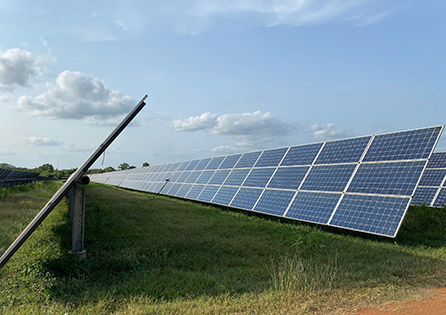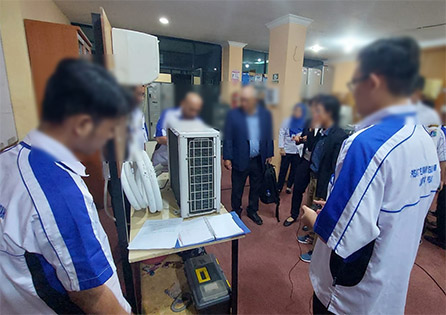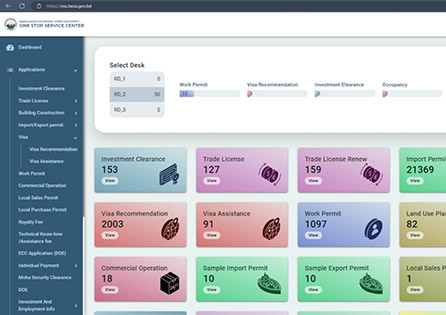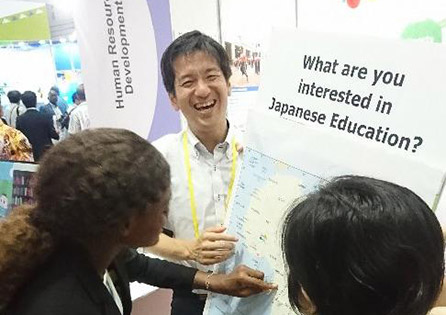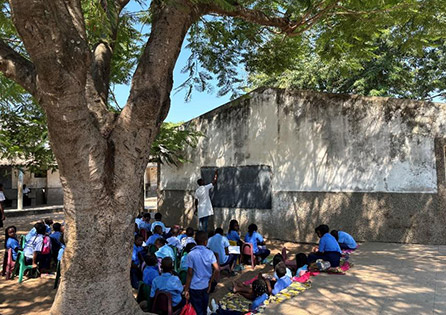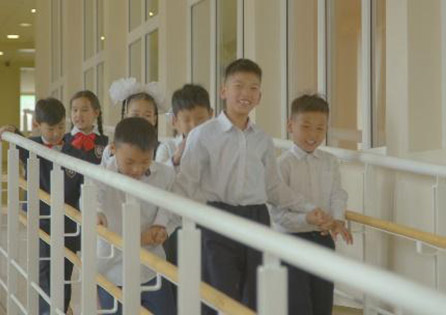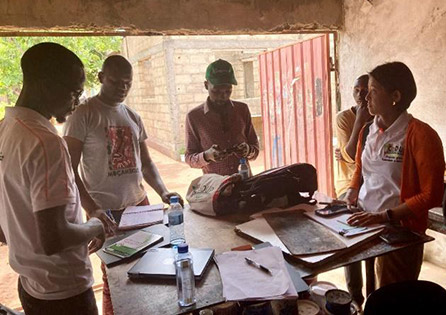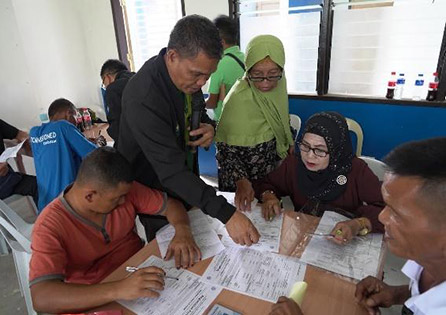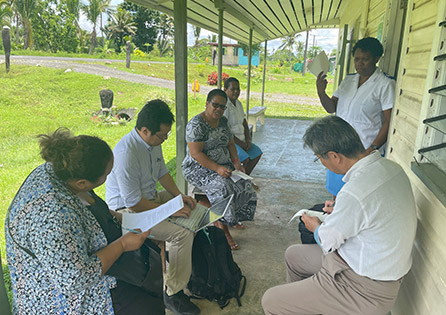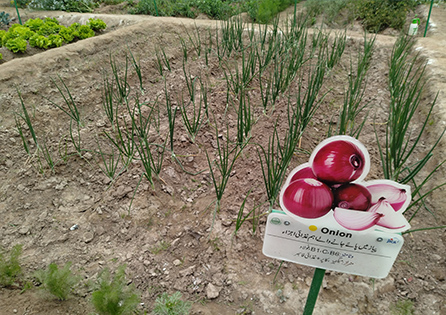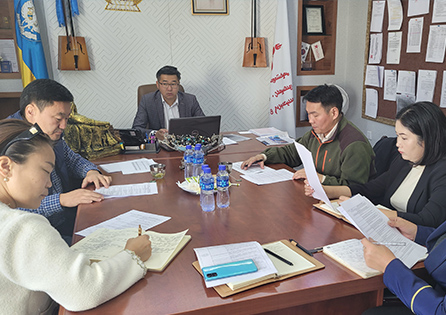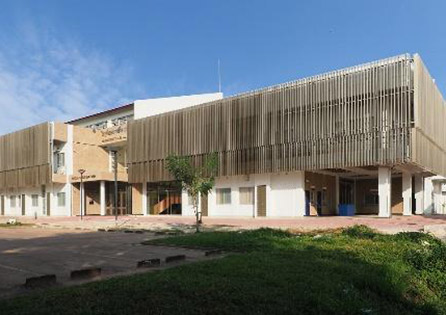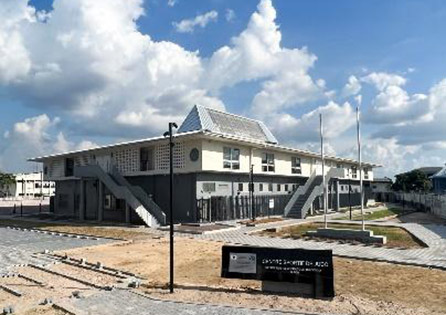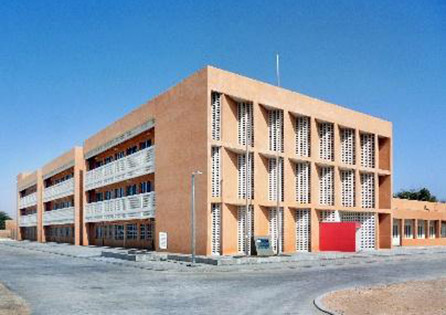This website uses cookies for a better browsing experience.
If you agree to the use of cookies, please click the "Agree" button.
Please refer to the Information Security regarding the use of cookies on this site.
PROJECT FOR EXTENSION AND EQUIPMENT PROCUREMENT ON THE NATIONAL SCHOOL OF PUBLIC HEALTH IN NOUAKCHOTT MAURITANIA IN ISLAMIC REPUBLIC OF MAURITANIA
Country:Islamic Republic of Mauritania
Client:JICA
Duration:2015 to 2018
Project partners:National School of Public Health, Nouakchott, Mauritania (ENSP)
Improving educational facilities and equipment to meet the demand for healthcare professionals at ENSP as well as to improve their capacity to teach at rural public health schools
Healthcare quality in Mauritania is not good and the country has high infant and maternal mortality rates.
In addition to ENSP in Nouakchott, the capital, there are several public health schools in rural areas of the country that train medical professionals.
Although ENSP was expected to lead and mentor rural public health schools, not only were its existing facilities too small but also the availability of teaching materials and the number of practicum sessions offered were significantly insufficient in light of the growing number of students. ENSP had issues in its ability to fulfill its role as an institution for human-capacity building needed for adequate healthcare service.
ENSP is located next to Nouakchott National Hospital Center, the country's top referral hospital. The project took advantage of this to plan facilities and equipment optimized for medical student training. As a result, ENSP became able to meet the demand for human resources in the healthcare field, exert better leadership toward rural public health schools, and contribute to the nationwide improvement of healthcare service standards.
With careful attention to rapid changes in global affairs, KRC improves the business environment in developing countries by helping to strengthen industrial competitiveness and to develop special economic zones, and by providing a wide range of support that uses digital technology (for entrepreneurs and to improve public service delivery). We also boost the private sector in both Japan and developing countries by leveraging domestic and international public-private partnerships (PPPs). This is done through support for Japanese businesses to expand overseas, overseas infrastructure development, and business matchmaking between Japan and developing countries.
Through technical cooperation in developing countries, we are working toward the realization of a world where everyone can access high-quality education. This includes support for the formulation of educational plans, capacity building for managing educational institutions, teacher training and development of learning materials. By collaborating with the ministry in charge of education, local educational authorities and schools in each country, we work in various stages and areas of education such as basic, higher and inclusive education.
With an aim to reduce disparities in developing countries, we provide effective and practical solutions and improvement strategies to help the socially vulnerable, develop rural areas and improve governance. In particular, we play key roles in making improvements to society in conflict-affected areas that lead to restoration and conflict-recurrence prevention by enhancing fair and reliable public administration, employment promotion and community capacity building. In Japan, to facilitate regional development and improve the living standards of local populations , we offer consultation service to national ministries and agencies, as well as to local governments.
KRC assists governments of low and middle income countries to improve the well-being of their people, including socially vulnerable populations, from perspectives of both healthcare and social protection. KRC has provided the assistance this through technical cooperation and research activities to build human capacity among healthcare professionals, build hospitals, improve hospital management systems and strengthen social security systems. More specifically, KRC has worked for addressing a wide range of social issues, such as malnutrition, weak health care system, insufficient social security systems, non-communicable diseases (NCDs), disability and development, and aging populations.
We mainly provide consulting services for investigation, planning, design and supervision for facility development and equipment procurement in projects conducted using Japanese ODA grants or loans.
Through field surveys, we understand current issues and assistance needs, and actively discuss with stakeholders at various levels, including project beneficiaries, users, and responsible institutions. Our findings are reflected in planning and design, and we aim to contribute to the development of local communities and the target sector.




